Latino Equality Alliance (LEA) is a Latinx LGBTQ+ nonprofit located in Boyle Heights. The organization was founded in Los Angeles around 2009 as a direct response to the passing of Proposition 8, an initiative that defined marriage as legitimate solely between a man and a woman.
CALÓ NEWS interviewed Eloy Armendariz, the alliance’s development assistant to discuss issues involving the Latinx generation and healthcare.
Armendariz earned a Bachelor’s degree in Public Relations from Texas Tech University. His work with LEA revolves around cultivating relationships with donors and developing new funding opportunities.
The mission of LEA is to advocate for the equity, safety and wellness of the Latinx Lesbian, Gay, Bisexual, transgender, queer + community. LEA offers a variety of resources for LGBTQ+ individuals, such as educational workshops, Covid-19 resources, personal protective equipment and mental health support.
In LGBTQ+ communities, discrimination is often linked to poor mental health, including anxiety, self-harm, and suicide attempts, according to The Center for American Progress. As stated on its website “62% of Hispanic LGBTQ individuals report feeling so sad that nothing could cheer them up.”
Affordable food is also another resource that LEA makes available to those in need in the Latinx LGBTQ+ community. The Alliance operates The Pride Pantry, which supplies canned goods, as well as fresh produce and PPE for families in the community. The Pride Pantry, hosted in partnership with the Los Angeles LGBT Center and located in Boyle Heights, also serves as a hub for community residents who want to learn more about Covid-19 safety, including the benefits of the vaccines and boosters and where to visit to receive the vaccine.
LEA supports several campaigns, such asQT Connect, which is a substance abuse reduction and education program designed to provide more resources to queer and transgender people in Boyle Heights, South East LA & gateway cities. The alliance also supports Mind Over Matter, a campaign that engages people in Montebello Unified School District & East Los Angeles College. The main purpose of the campaign is to combat the criminalization and incarceration of queer and trans youth of color in the communities of Southeast LA who engage in substance use.
LEA’S main office is located at 553 S. Clarence Street, Los Angeles. The organization can be reached at 323-286-7224.
Responses have been edited for clarity and brevity.
NATIONAL LATINX AIDS AWARENESS MONTH IS IN OCTOBER. WHY IS IT CRITICAL TO END HIV STIGMA?

Eloy Armendariz
ELOY ARMENDARIZ, 28, Los Angeles, development assistant, He/Him/El, Latinx
In the past, [HIV] was something that was deadly and that was very concerning to people. Now there’s treatment and limited exposure. Now you can live a full, healthy life as an HIV-positive person. Secondly, HIV is still a serious death threat to our community, especially if left untreated. I feel like a lot of people growing up in the Latino community have this untrustworthiness when it comes to medical professionals and part of that is thinking that we don’t have to get tested for certain things because we think we are healthy.
If you are being sexually active, you have to get tested and need to follow proper protocols, especially when you’re having sex with multiple partners or even one partner. We need to take care of ourselves and others. You need to be able to talk to your partners about your status, and if you are positive, you need to fully discuss that with your partner. Not only are you having a good conversation about it but you are further diminishing that stigma.
WHY IS HIV PREVENTION FOR QUEER/TRANS LATINX COMMUNITIES IMPORTANT? HOW IS YOUR ORGANIZATION HELPING?
Unfortunately, queer and trans-Latinx individuals are very vulnerable to HIV. Queer and trans individuals are at high risk of developing disassociative disorders, at a high risk of becoming sex workers voluntarily and also at a high risk of becoming homeless. It all comes together somehow in contracting HIV. It’s really important that we educate the people in our community about the risks of HIV, but also educate them about substance disorders and the dangers of real-life sex work. Growing up, I had this perception that homeless people were lazy, but the reality is that it is hard to live in Los Angeles and not be at risk of becoming homeless.
As far as the resources that we provide, in partnership with LA LGBT Center, they offer free testing every Monday through Friday from 10 a.m. to 7 p.m. at this location 2313 W. Martin Luther King Jr. Blvd., Los Angeles 90008. Also Mi Centro, which is a community center established in Boyle Heights, where LEA is housed, offers free HIV screenings every Wednesday from 9 a.m to 6 p.m. Another program offered is QT Connect, which works as a bridge between queer and trans individuals dealing with substance use disorders and the resources they need, whether they be mental, physical, medical or addiction based.
HOW ARE QUEER AND TRANS YOUTH DISPROPORTIONATELY IMPACTED BY SUBSTANCE DEPENDENCY?
When youth, especially queer and trans youth, don’t have a support system at home or within their communities, they often turn to substance use as an escape. However, this feeds into a vicious cycle that disproportionately affects marginalized individuals. Substance use, such as tobacco, leads to youth missing or quitting school. The criminalization of substance use means more queer and trans youth fall victim to the [so-called] School to Prison Pipeline, and this also puts youth at risk of contracting HIV and other serious illnesses. Substance use can also deteriorate mental health, leading to issues like depression, anxiety and even suicide on some occasions. Not only that, but it perpetuates a stigma of these youth being troublemakers when they just need a stable support system to help them through living and existing in this world.
HOW IS YOUR ORGANIZATION WORKING TO REDUCE TOBACCO CESSATION IN LATINX LGBTQ+ COMMUNITIES?
We have campaigns in partnership with our funders that promote restorative social justice around big tobacco’s predatory marketing of the LGBTQ+ Latinx communities. LGBTQ+ people are more than twice as likely to smoke as our non-LGBTQ+ peers, and nearly 30,000 LGBTQ+ people across the country die every year of tobacco-related causes. One of our big campaigns is Mind Over Matter, which is a base project that goes to schools to talk about how substance abuse is being criminalized. The reality is that we have services that we offer to fight substance abuse disorders and help decriminalize them. Through these campaigns, we spread awareness of the harm that tobacco does, not only to your body but also to our communities.
We also talk about tobacco cessation at our biweekly youth groups, distribute informational materials at our events and even post about the available resources on our social media pages @somoslea. Other services offered by the alliance are cannabis education workshops, navigational support and referrals.
WHAT SERVICES DOES THE LEA OFFER REGARDING MENTAL HEALTH?
Last year, the organization launched a mental health ambassador program. It encourages community members to share posts on social media related to mental health and available resources. Our community center also offers a variety of groups and programs like Hope & Healing, which is a support group for those troubled by attacks on the Latinx community; there are also licensed therapists available for free. We also have PFLAG en Español, which is a Spanish language support group for parents and friends of LGBTQ+ people. They meet every 2nd and 4th Tuesday of the month from 7 p.m to 9 p.m. Our youth groups provide safe space for youth to build community and learn important leadership skills.
WHY DOES THE LGBTQ+ COMMUNITY EXPERIENCE HIGH RATES OF MENTAL HEALTH CHALLENGES AND HOW DOES IT AFFECT THEM?
I can’t speak for everyone, but it all comes down to a lack of support. We grow up being told that something is wrong with us or that who we are is “bad.” As a kid, you don’t know any better. If you hear it enough times, you start to believe it and internalize it. Then you have the added pressure of people in power actively trying to erase who you are and your identity as an LGBTQ+ person. It’s hard to do it alone. That’s why building a community is so important when addressing mental health. LEA was founded in the sense that there weren’t enough resources for community building within the Latinx community about LGBTQ+ rights, and so here we are trying to build a community.
We have kids killing themselves because they think they don’t belong and that shouldn’t happen because they do belong and they have rights, so it’s really important to emphasize that message.
WHAT ARE THE PRIMARY RISK FACTORS FOR LGBTQ+ MENTAL HEALTH?
I feel like the biggest risk factor is when you don’t have the right mental health support or resources. One of the worst-case scenarios that can happen is leading to suicide. People think that they don’t belong and that they can’t be here and so they kill themselves. It can also lead to mental illness, substance use disorders and violence. We see so much of it and I’m not saying it is completely a mental health problem, but with school shootings, there’s definitely a mental health aspect to it.
Families also raise these boys to be hyper-masculine to [the point] where they can’t expressively feel and that causes a lot of internal damage to their mental health, it also leads to kids dropping out of school and going to prison and even [becoming a victim of] human trafficking. There are a lot of risks that go into not having the proper mental health support, especially for kids in the LGBTQ+ community.
Amairani Hernandez is a native of Los Angeles and a graduate of California State University of Los Angeles with a degree in Broadcast Journalism. She is a freelancer and focuses on stories about
Latinos, including social justice, art, and culture. She also likes to sing and dance in her free time and loves to listen to the radio in the mornings.

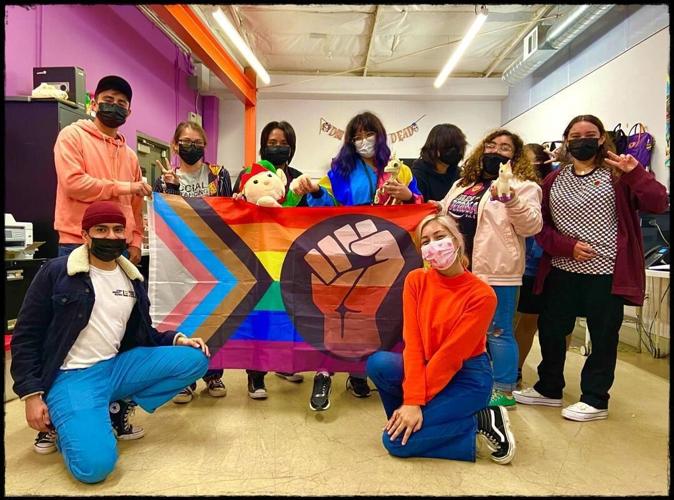
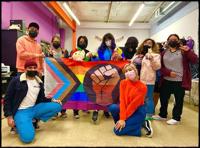
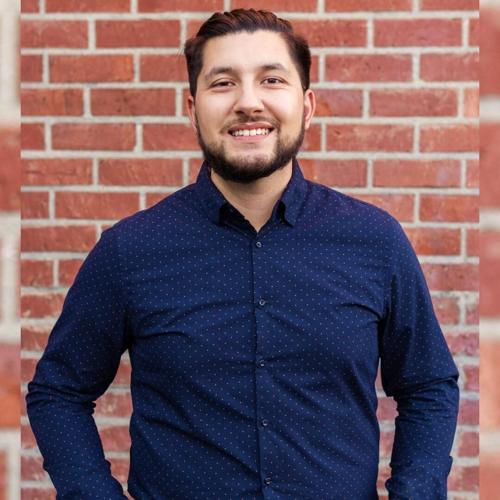
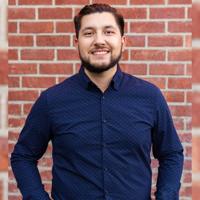
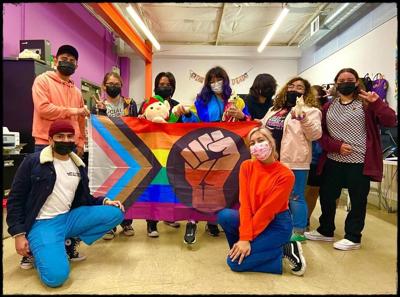

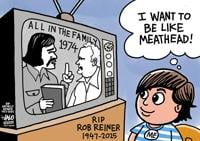







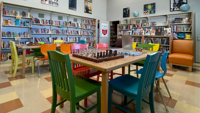




(0) comments
Welcome to the discussion.
Log In
Keep it Clean. Please avoid obscene, vulgar, lewd, racist or sexually-oriented language.
PLEASE TURN OFF YOUR CAPS LOCK.
Don't Threaten. Threats of harming another person will not be tolerated.
Be Truthful. Don't knowingly lie about anyone or anything.
Be Nice. No racism, sexism or any sort of -ism that is degrading to another person.
Be Proactive. Use the 'Report' link on each comment to let us know of abusive posts.
Share with Us. We'd love to hear eyewitness accounts, the history behind an article.